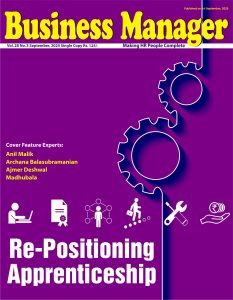By Deepanjan Dey, Sr. General Manager – ER, Emami Ltd.
Supreme Court in State of U.P. v. Ram Prakash Singh (Civil Appeal No. 14724/2024) on 23rd April 2025 sent a strong message to employers: A𝗻 𝗲𝗺𝗽𝗹𝗼𝘆𝗲𝗲 𝗰𝗮𝗻𝗻𝗼𝘁 𝗯𝗲 𝗽𝘂𝗻𝗶𝘀𝗵𝗲𝗱 𝘄𝗶𝘁𝗵𝗼𝘂𝘁 𝗳𝘂𝗿𝗻𝗶𝘀𝗵𝗶𝗻𝗴 𝘁𝗵𝗲 𝗲𝗻𝗾𝘂𝗶𝗿𝘆 𝗼𝗳𝗳𝗶𝗰𝗲𝗿’𝘀 𝗿𝗲𝗽𝗼𝗿𝘁, especially when that report forms the basis of the disciplinary decision.
In this case, a retired Assistant Engineer faced pension cuts and recovery based on a disciplinary enquiry where no witnesses were examined, no documents were proved, and 𝗰𝗿𝘂𝗰𝗶𝗮𝗹𝗹𝘆, 𝘁𝗵𝗲 𝗲𝗻𝗾𝘂𝗶𝗿𝘆 𝗿𝗲𝗽𝗼𝗿𝘁 𝘄𝗮𝘀 𝗻𝗼𝘁 𝗳𝘂𝗿𝗻𝗶𝘀𝗵𝗲𝗱 𝘁𝗼 𝗵𝗶𝗺.
𝗧𝗵𝗲 𝗖𝗼𝘂𝗿𝘁’𝘀 𝗼𝗯𝘀𝗲𝗿𝘃𝗮𝘁𝗶𝗼𝗻:
The Supreme Court held that the process was vitiated at the outset. Interestingly, the Court did not limit itself to the traditional test of 𝗿𝗲𝗾𝘂𝗶𝗿𝗶𝗻𝗴 𝘁𝗵𝗲 𝗲𝗺𝗽𝗹𝗼𝘆𝗲𝗲 𝘁𝗼 𝗽𝗿𝗼𝘃𝗲 “𝗽𝗿𝗲𝗷𝘂𝗱𝗶𝗰𝗲” 𝗱𝘂𝗲 𝘁𝗼 𝗻𝗼𝗻-𝘀𝘂𝗽𝗽𝗹𝘆 𝗼𝗳 𝘁𝗵𝗲 𝗿𝗲𝗽𝗼𝗿𝘁. Instead, it emphasized that 𝗻𝗼𝗻-𝗳𝘂𝗿𝗻𝗶𝘀𝗵𝗶𝗻𝗴 𝗼𝗳 𝘁𝗵𝗲 𝗲𝗻𝗾𝘂𝗶𝗿𝘆 𝗿𝗲𝗽𝗼𝗿𝘁 𝗶𝘁 𝘀𝗲𝗹𝗳 𝗶𝘀 𝗮 𝗱𝗲𝗻𝗶𝗮𝗹 𝗼𝗳 𝘁𝗵𝗲 𝗿𝗶𝗴𝗵𝘁 𝘁𝗼 𝗱𝗲𝗳𝗲𝗻𝗱, particularly when the enquiry officer is not the disciplinary authority. This marks an evolution from earlier interpretations which often placed the burden of proving prejudice on the employee.
Also read – Employer cannot restrict trade union members from contesting their elections: Bom. HC
𝗥𝗲𝘃𝗶𝘀𝗶𝘁𝗶𝗻𝗴 𝘁𝗵𝗲 𝗞𝗲𝘆 𝗣𝗿𝗲𝗰𝗲𝗱𝗲𝗻𝘁𝘀: 𝗥𝗮𝗺𝘇𝗮𝗻 𝗞𝗵𝗮𝗻𝗮𝗻𝗱 𝗕. 𝗞𝗮𝗿𝘂𝗻𝗮𝗸𝗮𝗿
The judgment builds on two foundational rulings:
• 𝘔𝘰𝘩𝘥. 𝘙𝘢𝘮𝘻𝘢𝘯 𝘒𝘩𝘢𝘯 𝘷. 𝘜𝘯𝘪𝘰𝘯 𝘰𝘧𝘐𝘯𝘥𝘪𝘢 (1991): the Court recognized that furnishing the enquiry report is part of a fair hearing. It applies to all establishment’s government and even private.
• 𝘉. 𝘒𝘢𝘳𝘶𝘯𝘢𝘬𝘢𝘳 𝘷. 𝘜𝘯𝘪𝘰𝘯 𝘰𝘧𝘐𝘯𝘥𝘪𝘢 (1993): a Constitution Bench held that if the employee is prejudiced due to non-supply of the report, the punishment cannot stand.
However, the present judgment pointed out that insisting on proof of prejudice in every case could defeat the very object of natural justice. The enquiry report forms a critical basis for the disciplinary decision, and denying access to it undermines the employee’s ability to defend meaningfully.
𝗧𝗵𝗲 𝗛𝗥 𝗮𝗻𝗱 𝗟𝗲𝗴𝗮𝗹 𝗧𝗮𝗸𝗲𝗮𝘄𝗮𝘆:
The key takeaway is clear: procedural fairness is not a mere formality—it is foundational.
Employers must ensure that 𝗲𝗻𝗾𝘂𝗶𝗿𝘆 𝗿𝗲𝗽𝗼𝗿𝘁𝘀 𝗮𝗿𝗲 𝗽𝗿𝗲𝗽𝗮𝗿𝗲𝗱 𝗱𝗶𝗹𝗶𝗴𝗲𝗻𝘁𝗹𝘆 𝗮𝗻𝗱 𝗳𝘂𝗿𝗻𝗶𝘀𝗵𝗲𝗱 𝘁𝗼 𝘁𝗵𝗲 𝗱𝗲𝗹𝗶𝗻𝗾𝘂𝗲𝗻𝘁 𝗲𝗺𝗽𝗹𝗼𝘆𝗲𝗲 𝗯𝗲𝗳𝗼𝗿𝗲 𝗮𝗻𝘆 𝗽𝘂𝗻𝗶𝘁𝗶𝘃𝗲 𝗱𝗲𝗰𝗶𝘀𝗶𝗼𝗻𝗶𝘀 𝘁𝗮𝗸𝗲𝗻. Justice must not only be done but must be seen to be done. Shortcuts in disciplinary proceedings risk not just setting aside of punishment, but damage to organizational credibility and trust.
Stay connected with us on social media platforms for instant updates click here to join our LinkedIn, Twitter & Facebook









